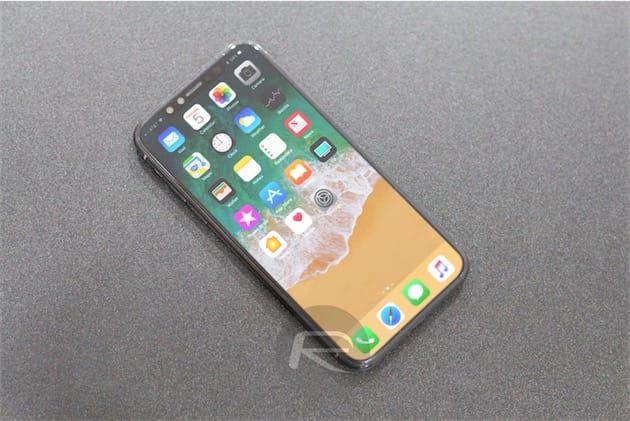Samsung will once again be Apple's top iPhone supplier in 2017
Share on Facebook
Share on Twitter
Share on Linkedin
Samsung was Apple's main supplier for iPhones from the very beginning, making the A-series processors and supplying both NAND flash and DRAM memory chips, but Samsung started supplying fewer components to Apple since 2011. , coincidentally when Apple sued Samsung for patent infringement. The South Korean company now only supplied DRAM chips for the iPhone 7, according to a teardown by iFixit.
But that lawsuit is finally coming to an end, with the US Supreme Court ruling in favor of the South Korean company last week, just as Samsung is set to become the main supplier of the iPhone again next year.
Some of the most expensive components in an iPhone are the display panel and memory chips (NAND flash and DRAM combined). In the iPhone 7 (32GB), these components together are worth more than a quarter of the BOM total ($219.80), according to IHS Markit data. Reports indicate that Samsung will provide OLED display panels for at least one of the upcoming iPhones, along with NAND flash memory chips. The addition of DRAM chips to the mix will make Samsung the leading supplier among hundreds of companies.
(Photo credit: Peter Macdiarmid/Getty Images)
OLED display
Apple will finally adopt OLED panels next year to have an iPhone with a curved screen (most likely for the 10th anniversary version), and Samsung will be the sole supplier, Bloomberg
reported
last month. Not that Apple had a choice. The Korean tech giant dominates the market.
"Currently in the flexible OLED market, Samsung is the only company to mass-produce and hold the No. 1 position in the OLED smartphone and OLED panel markets," according to Jeff Kim and Kevin Kim, analysts at Hyundai Securities.
Samsung's Galaxy S7 and Note 7 used OLED displays. (Photo credit: SeongJoon Cho/Bloomberg)
memory chips
Samsung is the largest supplier of NAND flash memory chips, with more than a third of the global market share. With so much activity, Samsung has been able to afford to pass on Apple's demands in previous years, which were to use EMI shielding technology,
reported

ETNews. That would cost Samsung more money and leave SK Hynix and Toshiba to step in.
Samsung now needs a big buyer, like Apple, to make full use of its new semiconductor factory. In 2014, Samsung invested 15.6 trillion won ($14.7 billion) in a new chip factory in South Korea, the biggest investment for a single factory from the tech giant.
The new plant will go into operation next year and ETNews has
reported
Samsung will again supply NAND flash memory chips to Apple.
But again, the California company couldn't really avoid Samsung. The iPhone maker sources from multiple vendors, and it's hard not to go with the biggest supplier of NAND flash memory chips.
Apple also won't be able to circumvent the use of Samsung's DRAM memory chips, as it controls about 60% of the mobile DRAM market.
A-series chips
Contract chip manufacturing is really the only area where Samsung faces competition, due to the Taiwanese foundry
TSMC.
Samsung and TSMC both made Apple's A9 chips for last year's iPhone 6 smartphones, but the Taiwanese company won an exclusive deal for the A10 chips for the iPhone 7. It's expected to continue to be the sole supplier of A11 chips used in next year's iPhones.
TSMC's advantage comes from its integrated fan wrap technology, which the company claims has improved both wrap speed and thickness, as well as thermal performance. This improvement will help TSMC to continue to secure Apple's business, said Len Jelinek, senior manager of semiconductor manufacturing at IHS Markit. terms of SoC performance, as well as a physical advantage in board assembly,” he said.
But that loss didn't leave Samsung too disappointed. This year it produced flagship chips for Qualcomm, the other big chip buyer, and will do the same in 2017.
Scratch your back
Samsung is a vertically integrated electronics company and its advantage comes from the synergy of handsets and components It has huge facilities that manufacture more components than its own smartphones for economies of scale, and needs big buyers of components like Apple.
Apple depends on multiple sources, but it also needs a reliable supplier that can manufacture high-quality components in large quantities like Samsung.
Ultimately, despite the rivalry and legal battles, the two major smartphone makers need each other.
